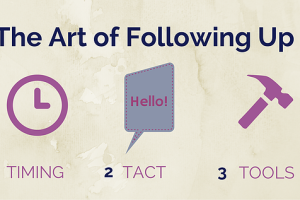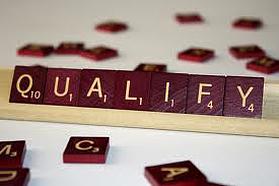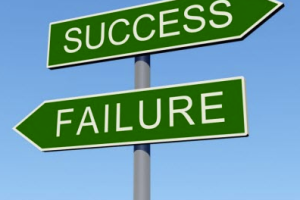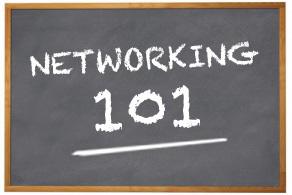We’ve probably all experienced it at least once: that big deal we had “in the bag” falls through at the last minute, leaving us feeling like we’ve been sucker-punched in the gut. Already basking in the afterglow of our hard work, feeling pretty good about ourselves, we suddenly realize how we’ve made faulty assumptions about our customers’ needs and underestimated internal threats to the deal. It’s enough to deflate even the biggest ego.
Wise salespeople are wary of such things from the beginning. We must not take anything for granted – being a top performer, we need to follow the process and stay on top of it all the way through the close— and frankly beyond the close and through client on-boarding and ramp up. If we’re going to succeed in a highly competitive sales environment, then we need to guard against last-minute surprises. So here are a few tips.
Beware of overconfidence.
Confidence is generally considered a sales virtue, and with good reason. Confidence helps us conquer our fears and present our best, most affable selves when prospecting for new business. It demonstrates that we believe in our products and their ability to address our customers’ real needs. Perhaps even more importantly, confidence promotes resourcefulness and gives us that tenacious edge necessary to power through obstacles. So we’re right to stimulate this quality in our sales teams.
But too much of a good thing is not a good thing. If we’re not careful, we’ll cross the line into overconfidence, or that false sense of invulnerability that tells us we simply can’t lose because we’ve gotten too good at what we do. Besides promoting unsavory personality qualities like boastfulness and obstinacy, overconfidence makes us sloppy. Success in sales often breeds arrogance the wise say. But arrogant sales executives often abandon the very traits—preparation, attention to customer needs, active listening, among the basic that brought success in the first place. More humble salespeople recognize that even when all signs are go, any deal that hasn’t closed already is still in the air and demands our best efforts.
Sales guru Mark Suster describes how he learned this lesson the hard way early in his career. As a rule, he explains, we’re prematurely persuaded that a deal is done while there are still plenty of opportunities for things to change—whether in our favor or not. That’s why we must remain vigilant even when we’re confident that we’ve netted the sale, lest our enemies steal it out from under us at the last minute. “When you first ‘win’ the deal,” he says, “assume it’s the ‘2-minute warning’ and the opposing team still has the ball. It’s when the desperate throws start coming, but it’s often when your defense is most tired. Don’t let that be you. Play all 60 minutes and be mentally prepared for overtime.”
Qualify continually.
We tend to think of qualification in narrow terms. Certainly it’s important for us to weed out the time-wasters early on in the sales process so that we can focus our best efforts on the most promising leads. But we have to resist the tendency to make a “step” out of qualification, as though it’s only a one-time part of the sales process. This is a viciously dynamic game, after all. We can’t afford to get so focused on the “next step” in our process that we forget to check in with our customers at multiple points along the way, making sure that we still have a good problem-solution fit. We have to qualify continually, because in our world, its never fully qualified until you close the deal.
The sooner we recognize the telltale signs of a poorly qualified opportunity, the sooner we can divert our resources to more fruitful pursuits, such as prospecting new business. Unfortunately, the signs don’t always become apparent early on. Sometimes they manifest very late in the process—perhaps even at the point when we’re ready to close, well after we’ve already poured substantial resources into what appeared to be a promising lead. The only way to protect ourselves against squandering more resources is to periodically step back, even from our “qualified” deals, and to objectively reassess the situation. If things still seem on track, wonderful! Persistence is a virtue. But if there are signs of flagging motivation on the customer’s part, then we do well to make sure our attitude hasn’t crossed over from persistence to stubbornness.
Celebrate the small things.
Sales is hard work. That’s part of why it’s so tempting for us to celebrate prematurely. We want to kick our feet up and relax once it starts to look like things are going well for a deal, because we know there will be plenty of times when we’ll have to work very hard on less promising opportunities. It’s human nature.
Celebrating victories is also important for building a positive sales culture, one that rewards top performers and cultivates upbeat persistence across the team. It’s very simple—positive people create positive opportunities and success creates success. We’re right to let our people celebrate, then. If anything, we’re guilty of not celebrating enough.
But a premature celebration of a “big win” that fails to pan out can be utterly demoralizing. It can be enough to make a salesperson throw in the towel for good, which is why we do well to celebrate the “little wins” that happen along the way, in a manner commensurate with their impact on our companies’ long-term growth. In fact, “little” wins are often the important milestones that mark genuine progress toward organizational goals. The little victories are what it takes to drive success – it’s those quick contract wins, your first hundred twitter followers or that new fast growth customer that help your company grow, year in and year out.
If we only celebrate the big-contract closures that happen relatively rarely, then we inadvertently communicate to our teams that “little” victories don’t really matter unless they finally result in a “big” win for the company. On the other hand, when we make it a habit to modestly celebrate the “little” victories, we feel less shell-shocked by the last-minute collapse of a promising deal. The positive culture we’ve generated helps us to keep the loss in perspective, to learn from our mistakes, and to move right on to the next opportunity. So let’s continue to celebrate the “big” wins, by all means; but let’s also get creative and find ways to reward ourselves and our team players for making progress toward long-term goals that may not be as easily measured in terms of final closings.
And while we’re on the subject, let’s remember that closing the sale is really just the beginning of a different phase of the sales relationship. In a sense, our job is never truly done because our sales processes are more than just vehicles for obtaining signatures and a bank deposit; they’re designed to initiate fruitful, mutually beneficial partnerships. A powerful antidote to overconfidence and premature celebration is a healthy perspective on what happens after the sale, particularly with an eye toward referrals and follow-up business with satisfied clients. We should never ‘close the sale’, but instead, we should, ‘complete the sales process and begin the relationship.’
And then we can celebrate the relationship, not the deal.








